 Petzlover
Petzlover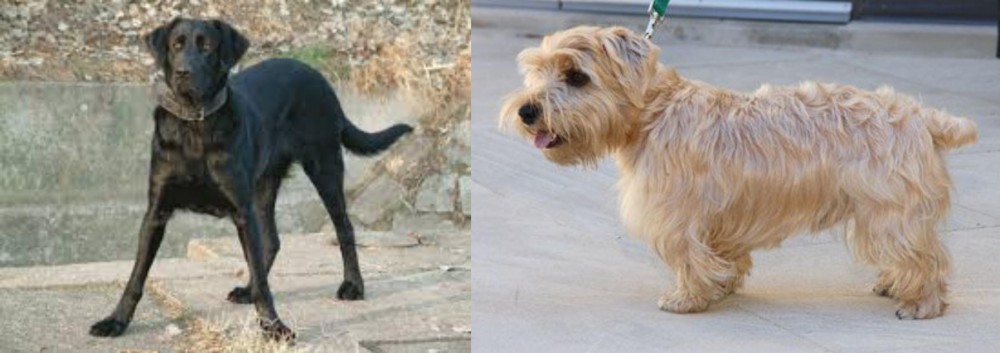 Cao de Castro Laboreiro is originated from Portugal but Lucas Terrier is originated from United Kingdom. Cao de Castro Laboreiro may grow 30 cm / 12 inches higher than Lucas Terrier. Cao de Castro Laboreiro may weigh 61 kg / 135 pounds more than Lucas Terrier. Cao de Castro Laboreiro may live 5 years less than Lucas Terrier. Cao de Castro Laboreiro may have more litter size than Lucas Terrier. Cao de Castro Laboreiro requires Low Maintenance. But Lucas Terrier requires Moderate Maintenance
Cao de Castro Laboreiro is originated from Portugal but Lucas Terrier is originated from United Kingdom. Cao de Castro Laboreiro may grow 30 cm / 12 inches higher than Lucas Terrier. Cao de Castro Laboreiro may weigh 61 kg / 135 pounds more than Lucas Terrier. Cao de Castro Laboreiro may live 5 years less than Lucas Terrier. Cao de Castro Laboreiro may have more litter size than Lucas Terrier. Cao de Castro Laboreiro requires Low Maintenance. But Lucas Terrier requires Moderate Maintenance
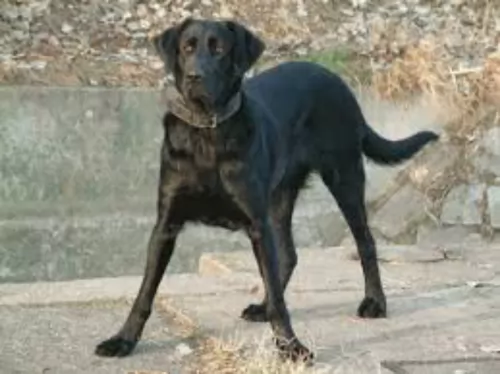 Cão de Castro Laboreiro originates from Portugal. Also known as the Portuguese Cattle Dog he was used long ago to guard livestock. Today, the modern Cao de Castro Laboreiro is descended from the molosser type dog.
Cão de Castro Laboreiro originates from Portugal. Also known as the Portuguese Cattle Dog he was used long ago to guard livestock. Today, the modern Cao de Castro Laboreiro is descended from the molosser type dog.
There are hints to the dog's origins from the 19th century, but changes in agricultural methods meant a disappearance of the dog as a livestock protector. Today the dog is mostly kept as a pet and was first seen at a dog show in 1914.
The Cão de Castro Laboreiro is recognized by the Fédération Cynologique Internationale as well as being recognized by the United Kennel Club in the United States.It is a rare dog and not many exist today but in Portugal, the USA and United Kingdom you will find a few breeders.
 The Lucas Terrier is a rare breed which hails from England, originating there in the late 1940s. Today it is considered a purebred. It was originally a hybrid dog, bred by crossing a Norfolk Terrier with a Sealyham Terrier.
The Lucas Terrier is a rare breed which hails from England, originating there in the late 1940s. Today it is considered a purebred. It was originally a hybrid dog, bred by crossing a Norfolk Terrier with a Sealyham Terrier.
Sir Lucas felt that the Sealyham Terrier was a bit too big for his purpose so he crossed the Sealyham with Norfolk Terriers to bring about the Lucas Terrier. The Lucas Terrier is a dog which is essentially bred for temperament and companionship and is therefore not aggressive.
The Lucas Terrier has been in the United States of America since the late 1960s and is considered a rare breed.The Lucas Terrier Club is a private, informally run organisation developed to both preserve and promote this dog breed.
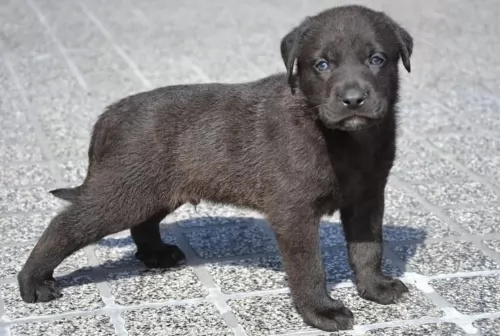 The Cão de Castro Laboreiro is a large dog, with height being in the region of 55 to 60cm and weight being in the region of 45 - 70kg. People describe the dog as wolf-like with a coat that is fairly short, thick and course. The coat is brindle with a base color of shades of grey, chestnut and black.
The Cão de Castro Laboreiro is a large dog, with height being in the region of 55 to 60cm and weight being in the region of 45 - 70kg. People describe the dog as wolf-like with a coat that is fairly short, thick and course. The coat is brindle with a base color of shades of grey, chestnut and black.
This large mastiff-type dog always has a black nose, his tail is long and carried high, but never curling over the back. He has a broad head and is much like the Labrador in looks, being free of wrinkles on the face.The ears of the Cao de Castro Laboreiro are medium-in-size and floppy while the eyes are dark brown.
The Cao de Castro Laboreiro makes an excellent pet as he forms strong bonds with his human family. He is territorial and makes an exceptional guard dog. He doesn’t particularly like strangers and is aloof around them.
This is an intelligent dog breed, he is strong-willed and stubborn, but when he is around the children in the family he is gentle and loving. When he has been trained and socialized, which is always highly recommended with every dog, he gets along with other pets in the home too.
 The sweet Lucas Terrier is a small dog breed that stands at between 25 – 30cm in height and weighs anything between 5 – 9 kg.
The sweet Lucas Terrier is a small dog breed that stands at between 25 – 30cm in height and weighs anything between 5 – 9 kg.
The chest of the dog is deep and low, the nose black, the eyes dark and almond shaped, the ears medium sized and floppy. The tail is traditionally docked, giving the dog an attractive, solid, compact look to it.
If you want your Lucas Terrier to become a parent, you can expect between 3 to 5 of the cutest little puppies. Spaying and neutering are an excellent idea health-wise if you don’t want your terrier dog to have puppies.
The weather-resistant coat of the Lucas Terrier is fairly harsh and is of medium length. While most Lucas Terriers are fawnish, cream, grey or black and tan, you also get a white one.
He does great with training and socialization and is an adaptable dog too, being happy to settle into life in the city or the countryside.
This is such a sweet, amicable, jaunty little dog, good with kids and always ready for a game. With socialization and training he is ready to get on well with everyone, as well as with other dogs in the house. It is no wonder that he is becoming so popular – he just gets on with everyone, and is eager to please.
The Lucas Terrier is generally well behaved as well and being quiet, gentle and calm indoors. Because he is a Terrier, he likes to bark quite a bit, but training and socialization can help with that. Training won’t be difficult as he is intelligent.
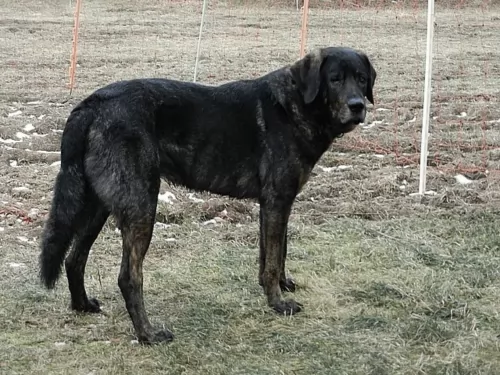 Environment and upbringing have plenty to do with how a dog turns out. People who just buy a dog for guardian purposes and nothing else can’t expect companionship in return.
Environment and upbringing have plenty to do with how a dog turns out. People who just buy a dog for guardian purposes and nothing else can’t expect companionship in return.
The Cão de Castro Laboreiro has always been a fearless guardian of livestock with his strong protective characteristics. He is intelligent and recognizes that a child in the family needs his protection.
This is a large dog who is strong, brave and intelligent but with his human family he is gentle, loving and loyal. Nonetheless he still requires a firm owner, and if you’re fair and firm with him you get the best with him. With this dog you can form a close friendship and bond.
 Lively, playful, social and animated – the Lucas Terrier is such a pleasure to have around and will bring joy into your home. He is full of enthusiasm and will always be ready for a game or for a walk.
Lively, playful, social and animated – the Lucas Terrier is such a pleasure to have around and will bring joy into your home. He is full of enthusiasm and will always be ready for a game or for a walk.
They are dogs who just love being around their human family, forming close bonds with them. They’re adaptable too and slot into different situations with ease.
Gentle, calm and obedient, once you let one of these sweet dogs into your home and heart, you’ll never want to be without such a loving friend again.
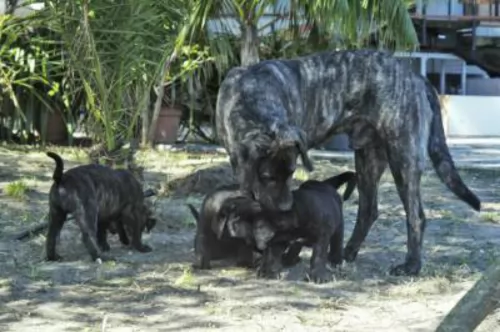 The Cão de Castro Laboreiro is generally a healthy breed, but even so, it is good to be aware of typical canine diseases that your pet may develop.
The Cão de Castro Laboreiro is generally a healthy breed, but even so, it is good to be aware of typical canine diseases that your pet may develop.
There are many eye problems that dogs have to contend with and if you see any kind of ulceration in your dogs eye, get veterinary advice.
A dog should always have access to a shady spot. Never ever leave your dog in a hot car. Heat builds up quickly and death can result soon as the body temperature rises.
Roundworm and tapeworm can infest dogs and you’ll need to speak to your vet about a worming program. Lice, mites and ticks are all parasites which attach themselves to the skin.
 Your Lucas Terrier is such a robust, jaunty, feisty little dog and with excellent care from you he may be able to push two decades. With a healthy diet and exercise, you shouldn’t have to be at the vet often with this dog.
Your Lucas Terrier is such a robust, jaunty, feisty little dog and with excellent care from you he may be able to push two decades. With a healthy diet and exercise, you shouldn’t have to be at the vet often with this dog.
There are however, always common dog illnesses that even the most healthy dog can succumb to – ear infections, eye infections, bloat, cancer, hip dysplasia and others.
Skin problems may seem mild, but they can bring a whole lot of frustration and pain to your pet. You’ve got to be careful because sometimes skin problems may be indicative of other health issues. Probably the most common cause of skin problems in dogs are allergies from parasites like fleas.
Bacterial skin infections are caused when your pet is bitten by a flea for instance and then he scratches and licks, breaking the skin and bacteria gets in, infecting the wound.
Yeast infections for instance could be found in the ear canal and around the anus. Infections like this occur in damp areas and also when other conditions are right. Yeast infections cause itchy skin with hair loss.
Skin infections are not to be taken lightly. They can bring a whole lot of discomfort to your pet and you will most certainly need to get him to the vet.
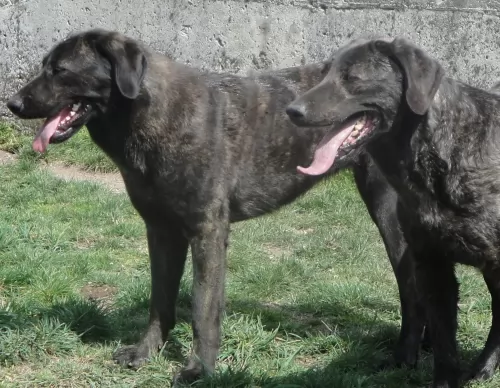 The Cao de Castro Laboreiro has a short coat which requires minimal grooming. Brushing him twice a week to rid him of loose hairs will suffice.
The Cao de Castro Laboreiro has a short coat which requires minimal grooming. Brushing him twice a week to rid him of loose hairs will suffice.
Nail clipping as well as ear- and teeth cleaning are other routine maintenance procedures for your pet.
The food you give your pet must be well-balanced and have protein and carbohydrates. If you want his skin and hair to remain healthy, vitamins, fatty acids and minerals will also be needed.
Boneless chicken and fish, brown rice and vegetables can be a good choice as well as some of the top quality commercially manufactured foods. An active dog will always need a higher protein content and therefore including raw meat into the diet is imperative – not every day as it can be very expensive, but every other day.
Remember that bones can be dangerous as they can splinter and cause your pet internal damage. Fresh, cool water must be available at all times.
 This little dog isn’t a high energy dog but he will need to have a daily walk over and above the games you provide him with. Giving him a walk will be stimulating for him too as it gives him the chance to see different things and sniff around a bit.
This little dog isn’t a high energy dog but he will need to have a daily walk over and above the games you provide him with. Giving him a walk will be stimulating for him too as it gives him the chance to see different things and sniff around a bit.
The Lucas Terrier is looked upon as a low maintenance breed and a low shedder. You will need to brush him twice a week to keep the coat lustrous and to remove loose hair. Hand stripping is a method used for grooming his double coat but some people prefer to have him professionally clipped.
Feeding a dog should be a simple affair. All dog breeds appreciate a simple but nutritious diet as this avoids digestive problems.
The Lucas Terrier relies on quality food full of vitamins and minerals to ensure his health and longevity. True, commercially manufactured foods aren’t a wonderful choice, but there are some good ones and they do offer a tremendous amount of convenience.
However, you don’t just want to put a bowl of dry kibble in front of your pet night after night, so to add some tasty variety, boil chicken and brown rice or pasta along with some cooked or raw vegetables and add this to his dry kibble from time to time. It makes like a delicious kind of stew to add to the dry kibble.
You’ll see, your Lucas Terrier will have bright eyes, a wet nose and a wagging tail. He’ll thank you for sticking to a simple style of feeding that doesn’t come with unpleasant surprises to upset his stomach. Make sure he always has a bowl of fresh cool water constantly available.